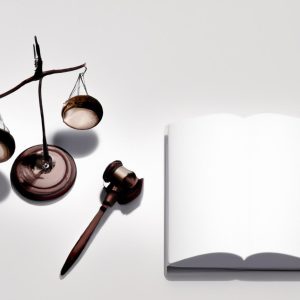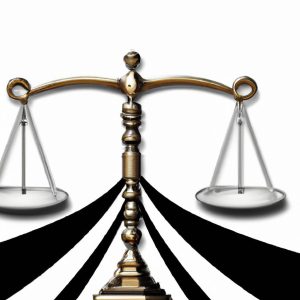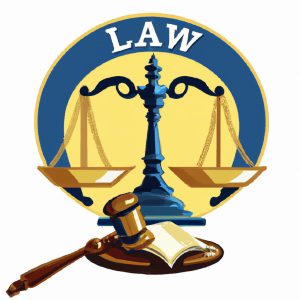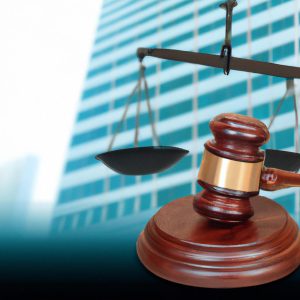In the intricate realm of estate planning, the decision to create a last will and testament is a crucial step towards securing one’s legacy and protecting their loved ones. With the rise of do-it-yourself (DIY) wills, individuals are presented with the opportunity to take matters into their own hands and craft a document that reflects their wishes for the distribution of assets after their passing. However, navigating the nuances of legal language and ensuring that all necessary provisions are in place can be a daunting task. At Morgan Legal Group in New York City, our team of experienced attorneys specializes in estate planning, probate, elder law, wills, and trusts to provide comprehensive guidance and support in creating a solid foundation for your future planning needs. Join us as we dive into the world of DIY wills, exploring the benefits, potential pitfalls, and the importance of seeking professional advice to ensure that your wishes are carried out seamlessly.
Understanding the Risks of DIY Wills
When it comes to creating a will, many individuals are tempted to take the do-it-yourself route. While this may seem like a cost-effective solution, it is important to understand the risks associated with DIY wills. One of the main concerns is the potential for errors or omissions that could render the will invalid or open to legal challenges. Without the guidance of a legal professional, individuals may overlook important details or fail to adhere to state-specific laws.
Additionally, DIY wills may not adequately address complex family dynamics or unique assets. A skilled estate planning attorney can provide personalized advice and create a comprehensive will that reflects your wishes and protects your loved ones. By seeking professional assistance, you can ensure that your final wishes are accurately documented and legally binding.
Key Components Every DIY Will Should Include
When creating a DIY will, it is essential to include key components to ensure that your final wishes are carried out accurately. One crucial element that every DIY will should include is a clear and concise statement of how you wish to distribute your assets. This should include specific details on who will receive what, to avoid any confusion or disputes among your loved ones.
Additionally, it is important to appoint an executor in your DIY will who will be responsible for carrying out your wishes. This individual should be someone you trust, who is organized and capable of handling the responsibilities that come with administering your estate. Including provisions for any minor children or dependents, as well as instructions for any funeral arrangements, can also help to ensure that your DIY will covers all necessary aspects of your estate planning.
Common Pitfalls to Avoid When Creating a DIY Will
When creating a DIY will, it is important to be aware of common pitfalls that could potentially invalidate your document or cause confusion among your loved ones. One common mistake is not being specific enough in your bequests. Simply stating that you want to leave your “assets” to a certain individual is too vague and can lead to disputes.
Another pitfall to avoid is failing to update your DIY will regularly. Life circumstances change, and what was once an accurate reflection of your wishes may no longer be relevant. It is recommended to revisit your will at least every few years, or whenever a major life event occurs such as marriage, divorce, or the birth of a child.
Why Consulting with an Estate Planning Attorney is Essential
Consulting with an Estate Planning Attorney is crucial in ensuring that your final wishes are carried out according to your desires. While DIY wills may seem like a cost-effective option, they often lead to costly mistakes and confusion for your loved ones. An experienced attorney can guide you through the complexities of estate planning, ensuring that your assets are protected and distributed appropriately.
By working with an Estate Planning Attorney, you can avoid common pitfalls such as unclear language, improper signing and witnessing, and invalid provisions. An attorney can also help you navigate complex family dynamics and legal requirements to create a comprehensive and legally binding estate plan. Don’t leave your legacy to chance - consult with an experienced attorney to protect your assets and provide peace of mind for your loved ones.
Q&A
Q: What is a DIY will?
A: A DIY will is a legal document that allows individuals to outline their wishes for the distribution of their assets after their passing without the assistance of an attorney.
Q: Is creating a DIY will a good idea?
A: While DIY wills can be a cost-effective option, they may not always cover all legal requirements and may be challenged in court.
Q: What are the risks of creating a DIY will?
A: Risks associated with DIY wills include potential inaccuracies, lack of legal expertise, and the possibility of it being deemed invalid in court.
Q: Can a DIY will be contested?
A: Yes, a DIY will can be contested in court if it is believed to be invalid or does not accurately reflect the wishes of the deceased.
Q: Are there any tips for creating a DIY will?
A: It is important to carefully follow all legal requirements, clearly outline all assets and beneficiaries, and consider seeking legal advice to ensure the document is legally binding.
Closing Remarks
In conclusion, creating a DIY will can be a cost-effective option for those looking to ensure their wishes are carried out after they pass away. However, it is important to carefully consider all factors and seek legal advice if needed to ensure the document is comprehensive and legally sound. With the right guidance, you can confidently take control of your estate planning and leave a legacy that reflects your true intentions. Remember, it’s never too early to start planning for the future. Happy crafting!











